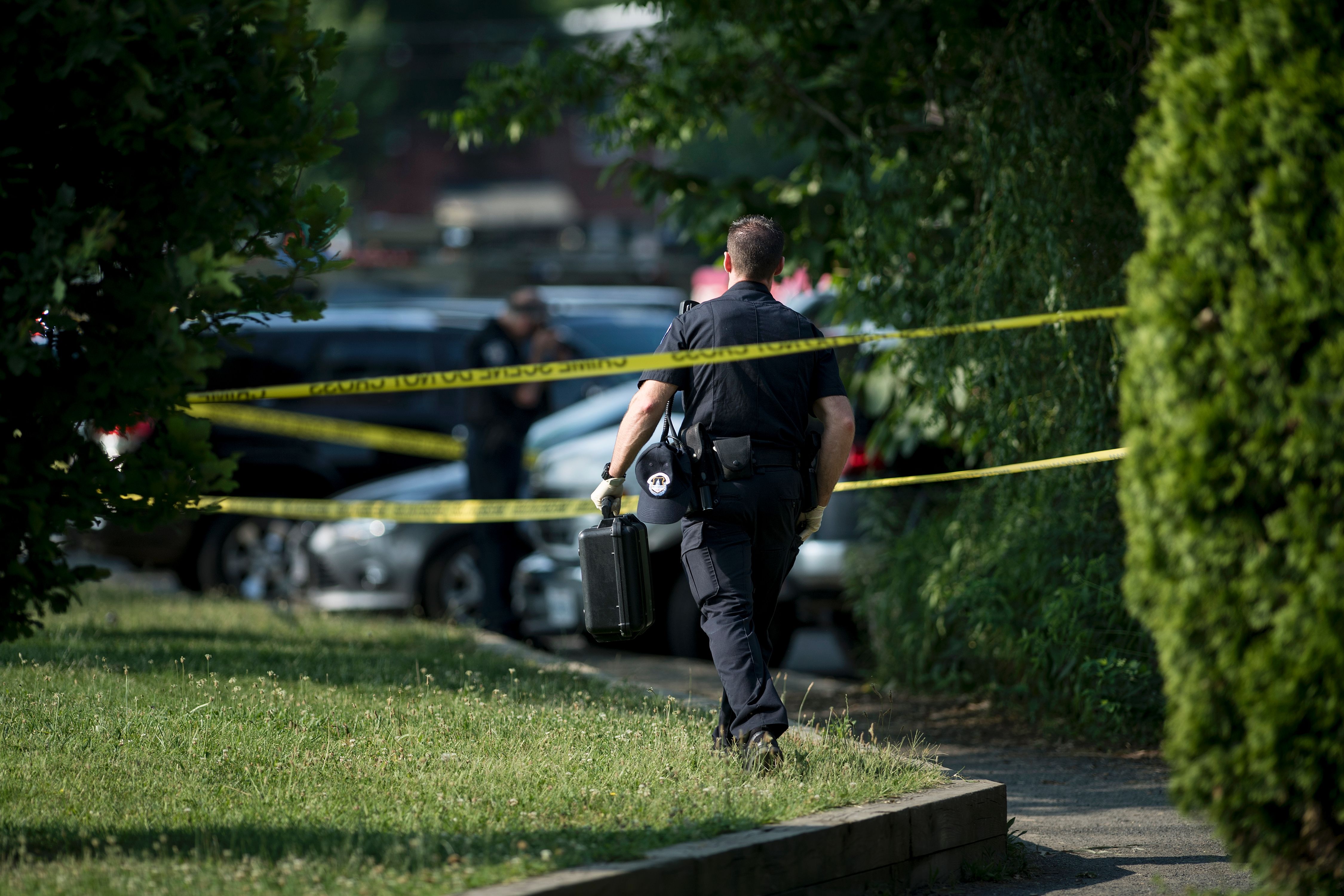Please, don't politicize the awful congressional shooting
Take a deep breath. Think of the victims and their families. Don't politicize this.


A free daily email with the biggest news stories of the day – and the best features from TheWeek.com
You are now subscribed
Your newsletter sign-up was successful
The shooting of Rep. Steve Scalise (R-La.) — who as majority whip is the third ranking Republican in the House — is a crime, a tragedy, and may very well have been a politically motivated act. But it is also an opportunity for the media, citizenry, and governing class to do something that goes against the normalized practices of modern discourse: Be prudent, calm, and decent in a time of high anxiety.
Details are sketchy and will continue to unfold, but the attempted massacre at a practice of the Republican congressional baseball team in Alexandria, Virginia, has left at least five people wounded, including Scalise. Everyone survived except the shooter.
In a phone interview with MSNBC, Sen. Rand Paul (R-Ky.) said he heard "50 or 60 shots" over the course of several minutes, and that the shooter's weapon "sounded like an AR-15 to most of us." Paul also noted that the only reason there was a Capitol Hill Police detail at the baseball field was because a member of congressional leadership was present. Without Scalise in attendance, Paul says, there would have been no law enforcement security presence on the scene, drastically increasing the likelihood of greater casualties. "It would have been a massacre," the senator said.
The Week
Escape your echo chamber. Get the facts behind the news, plus analysis from multiple perspectives.

Sign up for The Week's Free Newsletters
From our morning news briefing to a weekly Good News Newsletter, get the best of The Week delivered directly to your inbox.
From our morning news briefing to a weekly Good News Newsletter, get the best of The Week delivered directly to your inbox.
Rep. Ron DeSantis (R-Fla.) told Fox News that as he was leaving the practice early, a man approached him "asking whether there was Republicans or Democrats out there." Minutes later, the shooting began.
Rep. Mark Walker (R-N.C.) said the gunman was there to "kill as many Republican members as possible." And when the shooter was identified as James T. Hodgkinson, a 66-year-old Illinois man who supported Bernie Sanders and has been highly critical of President Trump on social media, internet-dwelling partisans had more than enough tinder to spark an inferno of hot takes.
AR-15s have been described as mass shooters' "weapon of choice" by numerous high-profile media outlets, and should it become known that the Alexandria shooter indeed tried to mow down elected Republican representatives of the federal government at an early morning baseball practice with such a weapon, the story could easily become a gun control and/or Second Amendment story, with the shooters and victims mere pawns in a predetermined political morality play.
Was the man who DeSantis spoke to indeed the shooter? We don't know yet, but either way, the narrative has been laid that this person possessed a rational political motivation beyond whatever psychoses led him to set out to commit mass murder.
A free daily email with the biggest news stories of the day – and the best features from TheWeek.com
Unfortunately, politics so often becomes an exercise in tribalism rather than policy and governance, and because the victims of this crime are Republicans (and police officers), some in the GOP tribe will set out to lay blame on cultural forces of "the left" for fostering an atmosphere of such hostility that political violence is the only logical outcome. (The president's son did just that in a tweet this morning.)
This instinct should be rejected, just as it should have been — but wasn't — in the immediate aftermath of the 2011 mass shooting in Tucson, Arizona, that left Rep. Gabrielle Giffords (D-Az.) grievously wounded and six others dead. Before anything about the shooter was known, commentators and partisans were blaming everything from the Tea Party to conservative talk radio to a little-seen Sarah Palin political action committee ad for the massacre.
To this day, the Tucson shooting is probably best remembered as symptomatic evidence of American political toxicity, even though the shooter — Jared Loughner — turned out to be a long-troubled and severely mentally ill young man with almost indiscernible politics and an obsession with lucid dreaming and conspiracy theories.
It's still early, but there should be no doubt that Wednesday's sick crime will be exploited by partisans on the right to prove their own preconceived narrative that widespread hostility from "cultural elites" to President Donald Trump fostered an environment that led a man to attempt to assassinate a number of members of the president's political party. For all its usefulness as a newsgathering tool, in troubled moments such as today Twitter becomes a place for craven jerks to feed the maw of partisan outrage:
In the spirit of living by my own advice, I don't know why the shooter did what he did, though I find it highly unlikely that the ham-fisted attempt at satire by Kathy Griffin or a Shakespeare in the Park production of Julius Caesar that almost no one has seen motivated a man to commit such a despicable atrocity.
That said, I do know what motivates someone to blare such baseless speculation mere minutes after the shooting stops: When you are only capable of seeing humanity in your own tribe, you can only see inhumanity in another tribe. This was true after the Tucson shooting, when right-thinking liberals needed to believe the anti-tax rhetoric of the Tea Party caused a bloody rampage, but it doesn't need to be true today.
Take a deep breath, think of the victims and their families, and resist the opportunity to score cheap points in the game of social media memes. Just for today, at least.
Anthony L. Fisher is a journalist and filmmaker in New York with work also appearing at Vox, The Daily Beast, Reason, New York Daily News, Huffington Post, Newsweek, CNN, Fox News Channel, Sundance Channel, and Comedy Central. He also wrote and directed the feature film Sidewalk Traffic, available on major VOD platforms.
